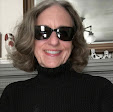CONLAN BOUNCED IN THE Ford and his fresh cigarette rolled under the pedals. He tried to stamp out the coal and lurched. How could the road be so muddy and still bounce him? Conlan was no scientist, that he’d grant. Breath plumed out of his mouth, made a milky blue patch on the windshield. His tongue was dry. It wanted to taste raspberry.
“Mutual trust,” Mr. Tunbridge said every September. “That’s what makes the stars come out.”
And then he gave Conlan something in advance.
“MULLED cider, cocoa, herb teas,” the brother said in answer to the question of how he could keep his soda fountain open through the winter.
Conlan looked up and down the street, which had only two summers ago been paved. “Herb teas,” he repeated. “You’re dreaming.”
“People need a wholesome place to come,” the brother said. “After the sleigh ride, after the skaters’ party. And the community sing. That’s every week.”
“You’re a bloody public servant now?” Conlan spat with finesse. “You’ll put bloody marshmallows in the cocoa, and no extra charge.”
The brother was waiting for the Syracuse truck that brought him gassed water.
“And what would you have me do, then? Go out on the lake with you and fish through the ice?”
“Nah, you’d find a way to drown.”
Conlan felt his nose going red in the sun. The street was giving up vapors.
EVERYTHING was bare, except for the oaks, always the last to let go. The birches were right without leaves, their black limbs striping the white sky, their white paper bark mottled black. Conlan viewed uncreased gray water through them, the lake, Racquet Lake, which the Tunbridges could have named after themselves, but hadn’t, which they owned in some different way than their ore mountains and smelters and ships. More intimately, more seriously. Conlan went into the boathouse. He looked at the racked canoes, smelled varnish. His palms felt cold; his fingers tingled and twitched as if he had just held someone under, fatally.
FOR a living, the brother had cut wood and shot quail and hung windows and so on. People in the town liked his thrift. Then he wooed and won Miss Loretta Frame, who had served eight years as governess to the younger Tunbridge children, and they liked his sand. The brother had foresight, and was not ashamed. His fountain had a veined marble counter, checkered floor tiles, filigreed taps and faucets, an etched blue mirror, and in their season, fresh flowers at every table. Father Voss, the Lutheran, who liked a tulip sundae, said the brother’s place was so comfortable it made him think about retirement. The brother had to have new dentures, he smiled so much. Conlan wasn’t exactly jealous; but he was irritated. It was weak to take the money. He told Loretta the children wept whenever her name was mentioned.
THE Tunbridge family carried history the way soda carried the colors of syrup. They knew things by instinct.









